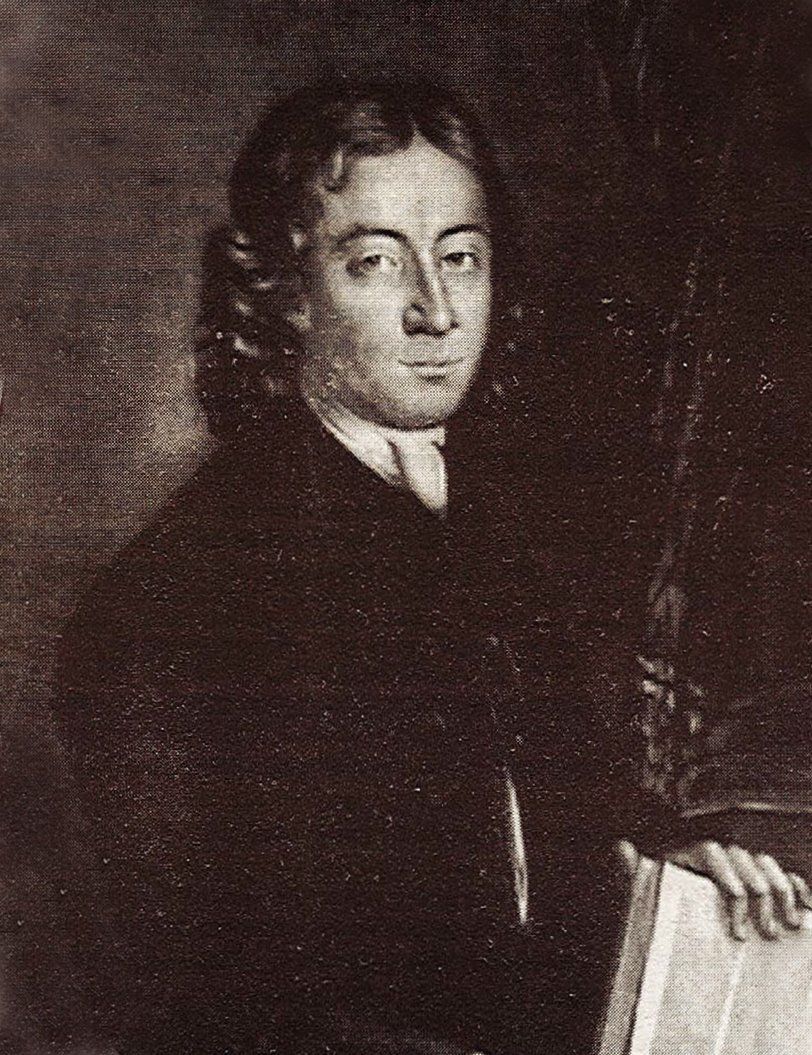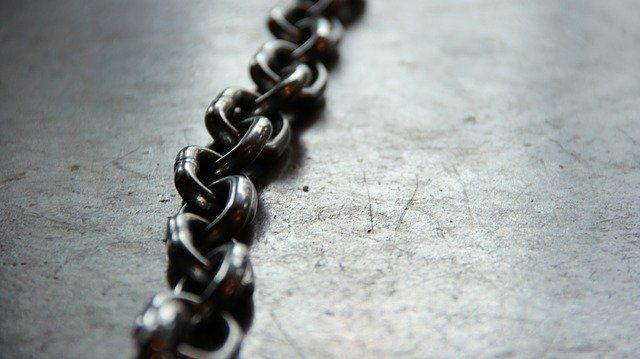
On May Day 1753 a clean, neatly dressed young man mounted the scaffold in Haverfordwest, spoke briefly to the vast crowd, then pulled the cap over his face and prayed quietly. Eventually he dropped his handkerchief, indicating his readiness to hang.
Unfortunately the executioner failed to notice and it was handed back. He dropped it again, raised his hand and uttered his final words, ‘Lord receive me’.
Crimes
Edward Lee was born in London around 1729 and fostered by people who neglected him and beat him frequently. His criminal career began early with the theft of sixpence, for which he was severely punished.
In 1745 the Monmouth Assizes ordered his transportation for stealing money and clothes. He escaped and managed to keep out of trouble, until a broken leg necessitated (in his view) a return to crime. In March 1748 he was sentenced to death in Carmarthen for burglary, but was reprieved and sentenced to transportation.
Lee again escaped, committed further crimes in the north of England and (calculating that it was worth the risk) determined never to work again. He spent his money on drinking, gambling and prostitutes.
Returning south, he stole gold rings and about £8 from a Buckinghamshire house. He was caught and imprisoned in Aylesbury jail. A death sentence was again commuted to transportation to Virginia.
There he was sold as a slave, but was treated well, eventually gaining a position of responsibility as overseer. After about a year, however, Lee was sold to a new master who mistreated him. He absconded but was caught and sentenced to 20 lashes.
Final crime
Lee forged a pass and escaped again, but was caught within three days. But, as no one claimed him, he gained his liberty and set out for New York via Philadelphia. Always restless, Lee sailed to the West Indies, returning to Wales in December 1752.
His final crime was committed in Haverfordwest, where he and two accomplices broke into the home of John Jones and stole silverware, some of which was in Lee’s possession when arrested. He was tried, found guilty and sentenced to be hanged at the Haverfordwest Great Sessions.

Five days before the execution, Mr Sparks, leader of a local religious society, brought John Cennick, an itinerant Moravian minister and evangelist to visit the condemned man.
Cennick wasted no time in explaining the gospel of salvation through Jesus Christ. Lee ‘behaved very sullen and stupid’and would not join Cennick when he knelt to pray, although he did invite him to return.
When the evangelist tried to visit Lee two days later, the jailer refused him entry. Undeterred, Cennick sought and received permission from the sheriff. Lee’s attitude had changed and his conscience now troubled him. Cennick urged him to make a full written confession and to seek the Saviour’s pardon.
Restless night
The next day Cennick visited Lee late in the evening, despite having preached three times that day, led a Society meeting and walked twelve miles. At times Lee believed the Saviour loved him, but was afraid because of his sins. This time, despite his chains, he knelt and joined in prayer. He then gave Cennick a written confession.
That night Cennick slept little, thinking of the man due to hang in two days. By morning Lee was labouring under a growing sense of conviction, and confessed to Cennick: ‘Last night I thought I felt more of our Saviour’s love, than in my whole life’. However, before long he again became disconsolate on account of the many sins crowding his mind.
Cennick and Lee both passed another restless night. At 6.00 a.m. Cennick gained admission to the jail where Lee told him he ‘had never known such a long, heavy night, or felt so before, the guilt and weight of his sins. An horrible dread had overwhelmed him, and his heart sunk within him, he was like one distracted and ready to perish, with almost all hope vanished’.

Mercy for me
Lee had added to his earlier written confession and Cennick made a copy for him to sign, affirming its accuracy. Cennick read Luke 15, explaining the parables of the Lost Sheep and the Prodigal Son, to which Lee listened attentively.
They sung and prayed, while Lee wept and trembled. Then suddenly he exclaimed: ‘Now I believe there is mercy in store for me; now I believe I shall be saved; my fear of death is gone, and I feel such comfort, which makes me believe I shall never be afraid again’.
After the parish minister had administered Communion, Cennick and Sparks rejoined Lee, who smiled as they entered. By now ‘his dark, hardened look was gone, and the mark of the Lamb shone out of his face; so that we could say little, but weep together with him for joy’.
The three sat together on the straw bed while Lee recalled how God had preserved his life, recounting his escape from prison in New York; how he lived on berries in the woods for almost a month; and how he could have been killed by snakes several times. He declared: ‘I believe God has ordered it on purpose out of mercy, that I might hear of him and be converted’.
Assurance of salvation
He now had assurance of salvation and joyfully exclaimed: ‘Now it is over! I am no more afraid, there is mercy in store for me’.
They sang hymns, and Cennick read of Jesus’ sufferings on the cross up to the point where he pardoned the dying thief. Lee prayed: ‘O say to my soul, this day shalt thou be with me in paradise’.
Hearing the clock strike he said, ‘In about an hour I hope to be with our Saviour’, adding, ‘O, I am unworthy of his grace. I shall be ashamed to see him, I know I have deserved eternal torments; but I believe there is mercy for me’.

When asked if he would like to live longer he said that he longed to be at home, but would be glad to see Cennick and Sparks there before long. The prison doors opened. The prisoner’s chains were sawn off and his arms were pinioned. He handed over his confession which concluded:
‘I might justly expect no mercy, or forgiveness, and not only the punishment and shame I am to suffer is just, but should death eternal be my portion, and the bitter pains of hell the recompense of my sins, it would be just also.
‘But I do believe there is mercy in store for me still, though I am unworthy of it, but there is forgiveness for me and all others who faithfully ask it of [Christ] whose mercy endures for ever …
‘The Lord is merciful and long suffering, and of great goodness, and wills not the death of a sinner, but rather that he would turn from his wickedness and live; and now though they kill my body, yet I believe my soul shall live with God, and our Saviour Jesus Christ, who died for me’.
Not afraid to die
Armed guards escorted them half a mile to St Magdalene’s Hill. On seeing the gallows Lee exclaimed, ‘I have deserved it long ago, but now … I shall soon be out of all my shame and misery’.
Cennick announced the hymn, ‘O thou that hearest when sinners cry’ and asked the crowd to pray for the prisoner. He prayed that Lee would be forgiven, comforted and taken home.
Thousands wept, including hardened sailors and ship-builders. Cennick laid his hands on the prisoner’s head and blessed him, while tears trickled down Lee’s face. Lee cheerfully mounted the ladder and spoke.
‘Please do not be troubled for me, but take warning by me … I shall now soon be at home, and am not afraid to die, because, though I believe I am the greatest sinner in the world, yet there is mercy for me. I hope, if there be any here whom I have wronged, you will forgive me, and I heartily forgive all’.
Seeing the gentleman he had robbed, he begged and received his forgiveness. Lee thanked the Sheriff, Cennick and Sparks, pulled the cap over his face and prayed. He was heard to utter, ‘Let me be with thee this day in paradise! Receive my spirit, dear Jesus, for I am coming to thee! I have no righteousness of my own, but the righteousness of the Son of God; therefore receive my spirit’.
The story of Edward Lee serves to highlight God’s providence and mercy. Lee’s life was preserved so that he might hear the gospel. Cennick was utterly convinced that no one was too hard for God to change.
That fact repeatedly drove him to his knees and to Lee’s prison cell. The God who transformed the life of Edward Lee has not changed, nor has the power of his gospel.






